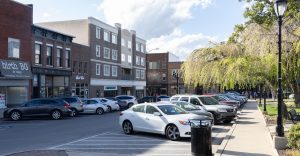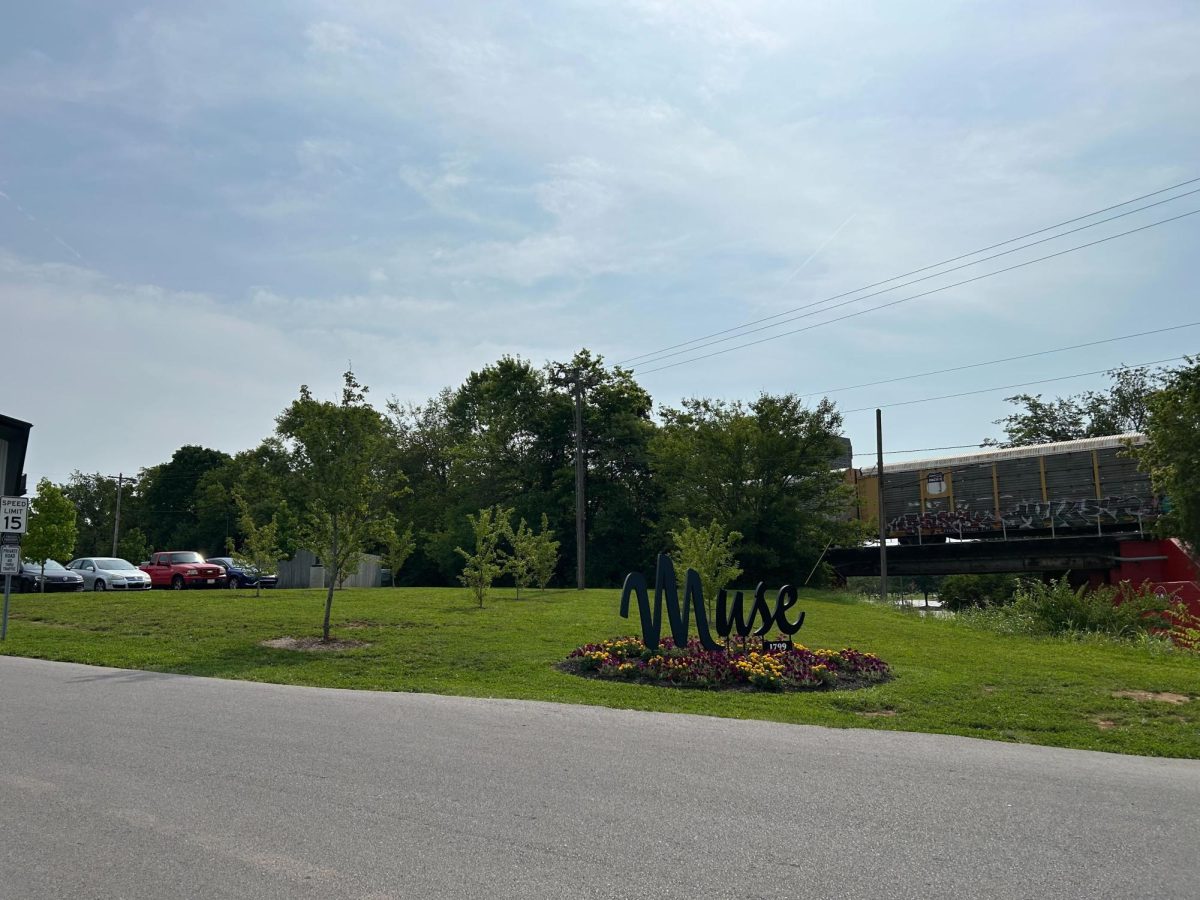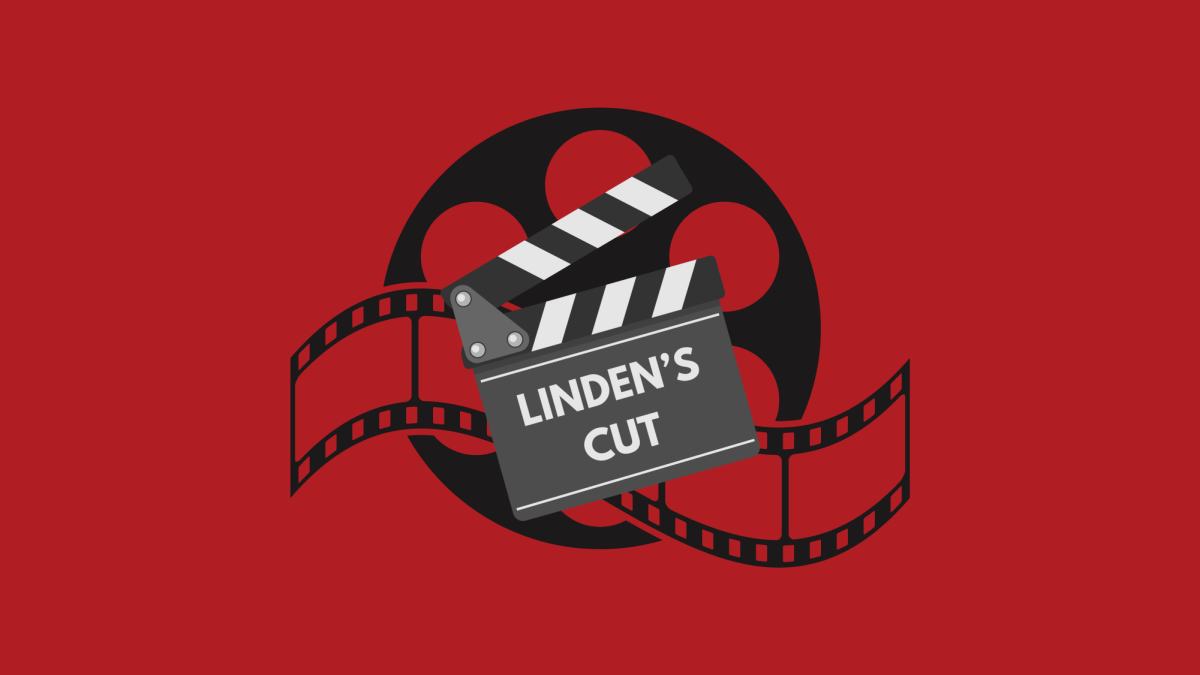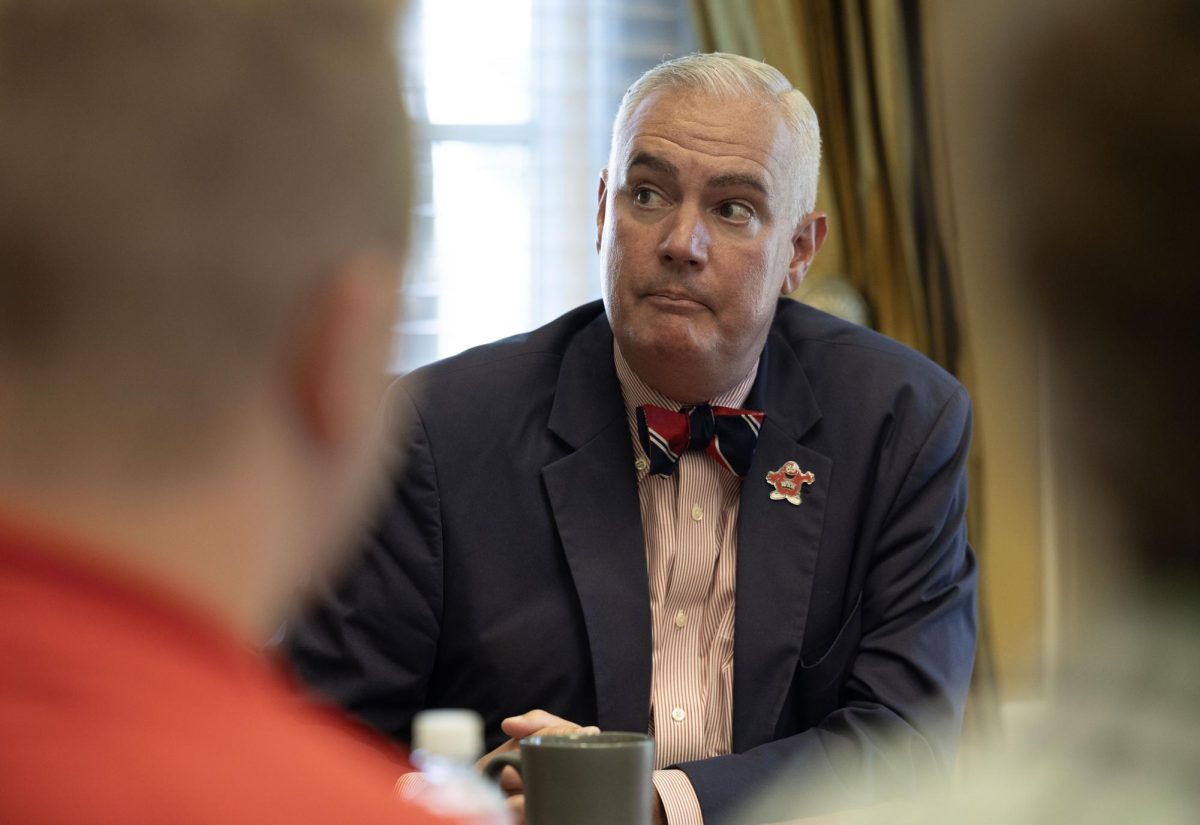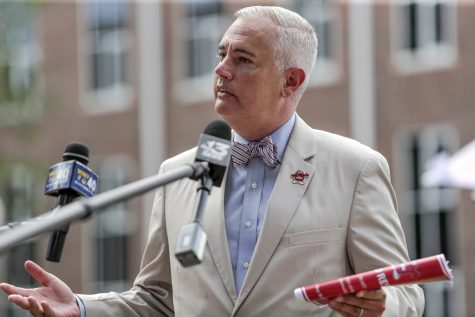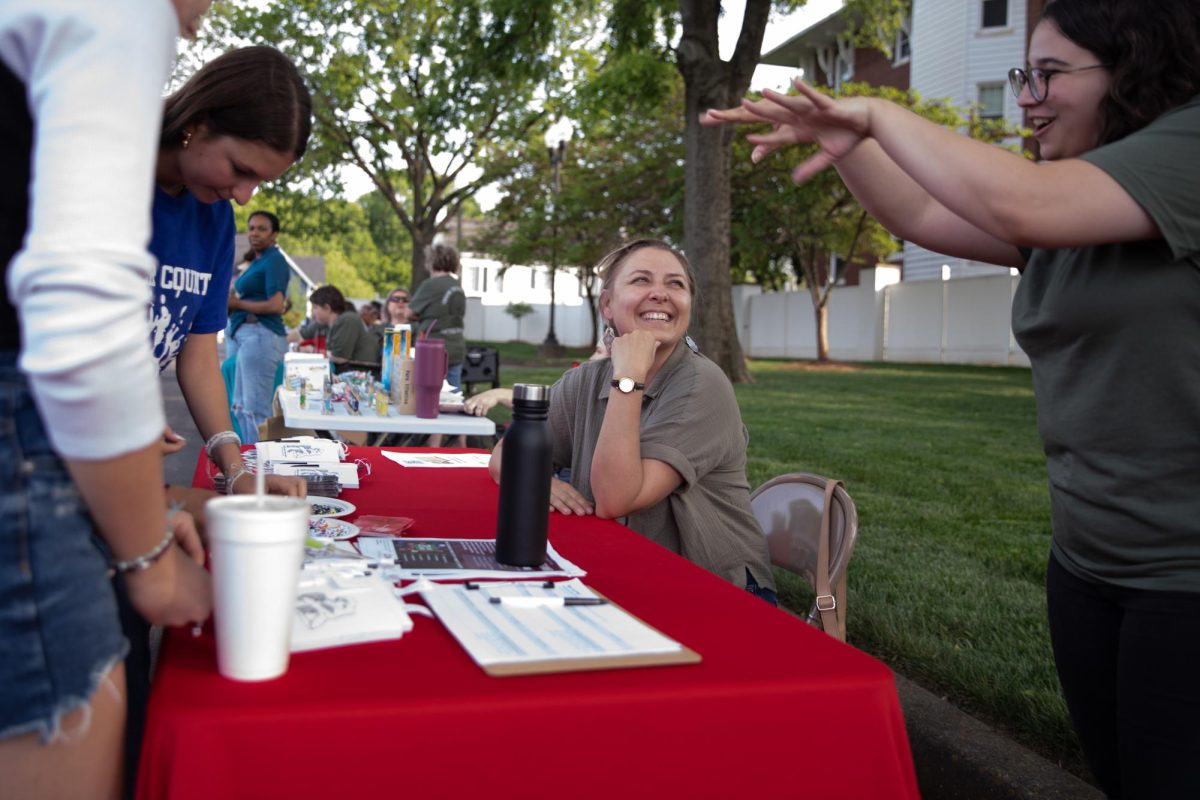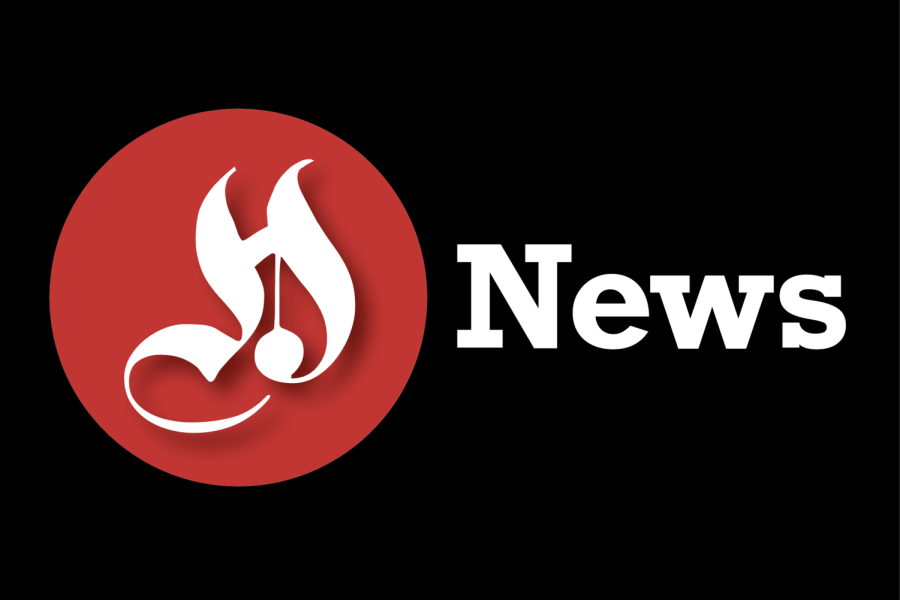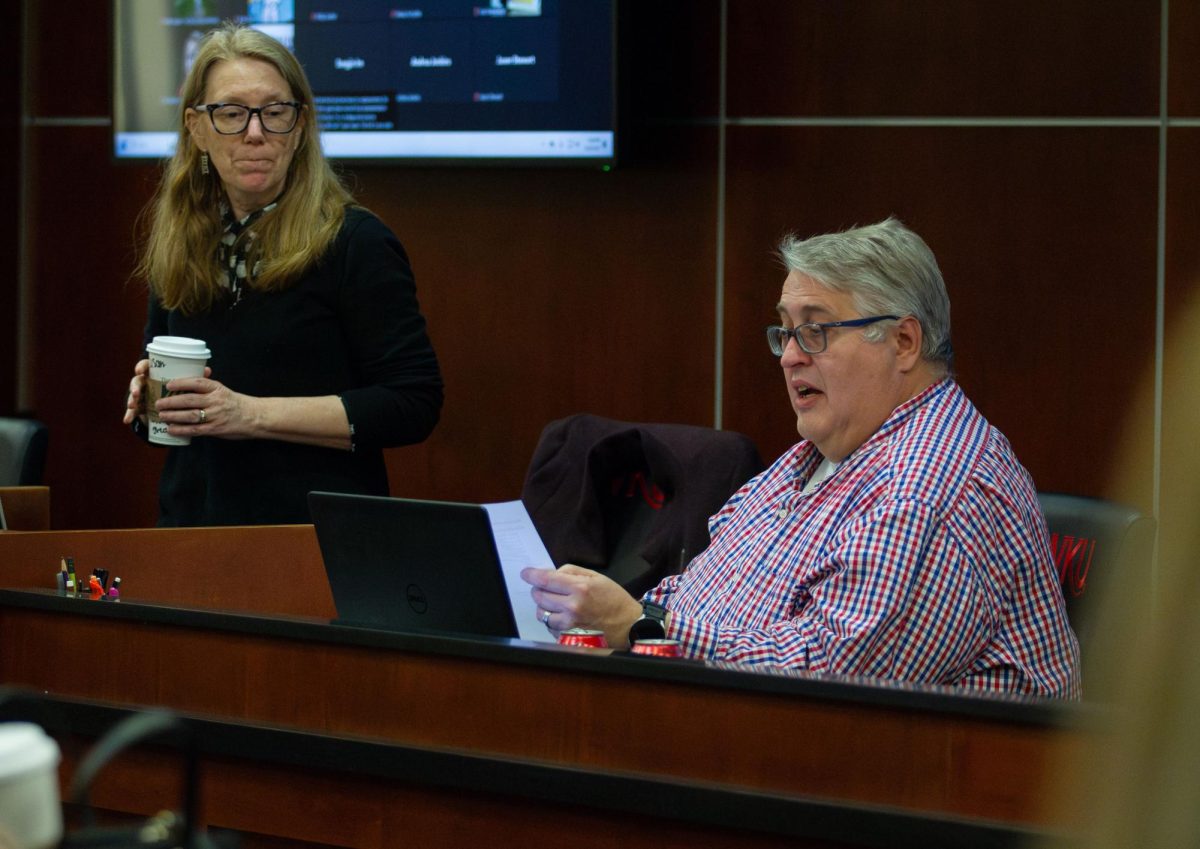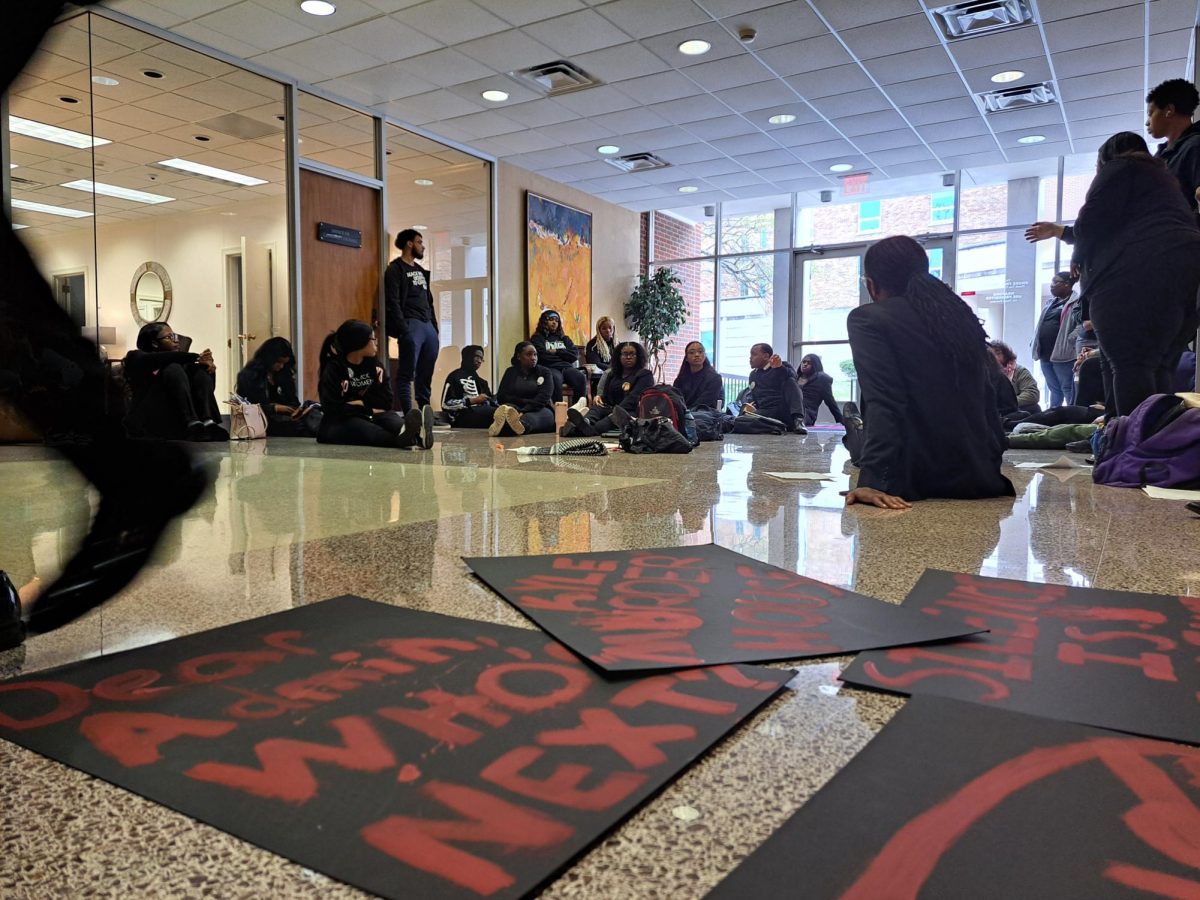The Herald Editorial Board met with WKU President Timothy Caboni on Thursday, Aug. 17 to discuss the upcoming semester.
Caboni’s Tenure
Caboni began his presidency at WKU in 2017 following the retirement of Gary Ransdell. At his investiture in 2018, he said he sought out to create a First Year Village, create a unique studying space which is the Commons at the Helm Library, and the WKU Innovation Campus.
Caboni said it is not fair to leave the seat after a short amount of time because of the length of campus projects.
“It’s not fair to anyone to do that, from my perspective, because the work that we’ve all committed to do as a university is part of a 10-year strategic plan. And the reason it’s part of a 10-year plan is because you don’t accomplish big things in three years.”
The First Year Village blossomed with the opening of Regents and Normal Hall and Living Learning Communities in Fall 2021. The Commons finally opened in Spring 2022 after several delays.
His presidency greeted him with a plethora of challenges including the pandemic and a $40 million deficit that the university was in when he started. After facing difficult financial decisions and budget cuts, he said the university is more financially stable than when he began his tenure.
”We have much more financial stability than we had previously,” he said. “We are much more mindful of the way in which we spend money.”
A new budget model, the Resource Allocation, Management and Planning (RAMP), was introduced in 2018. The individual colleges cover their revenue and costs and the model better aligns with state funding, according to WKU.
“If you looked at the challenges that we were facing, it was necessary thought to have a budget model that incentivizes recruitment and retention that empowers deans to make decision make make decisions at the local level closer to where the educational mission of the institution happens, which is in our colleges, and also creates accountability and transparency.”
Construction
Caboni discussed being excited for the upcoming semester and the completion and continuation of construction projects on campus.
One of the main projects that was part of the master plan for construction on campus, was the tear down of Garrett Conference Center. The area has since been remodeled into green space and is ready to be utilized by students.
“You know, one of the interesting things that you get to do as a president is shake projects and when we took down the Garrett Conference Center, we couldn’t just leave a big hole in the ground,” Caboni said. “And so what we’ve returned to now is essentially an oval that has multiple places for folks to pause, to visit, to sit to reflect.”
The Hilltop Restoration Project, which encompasses the changes at the top of the hill, began two years ago, Caboni said. It goes alongside the completion of the Commons at Helm Library which was completed in the spring 2022.
Caboni explained the importance of having the area close to the Commons, giving students a place to go after the library closes, and that the construction helped to transform the use of that space, especially for students in between classes.
“I think we just continued to advance what is an important differentiator for us, that our Hill is spectacular but it has to be purposeful as well,” Caboni said. “It can’t just be pretty.”
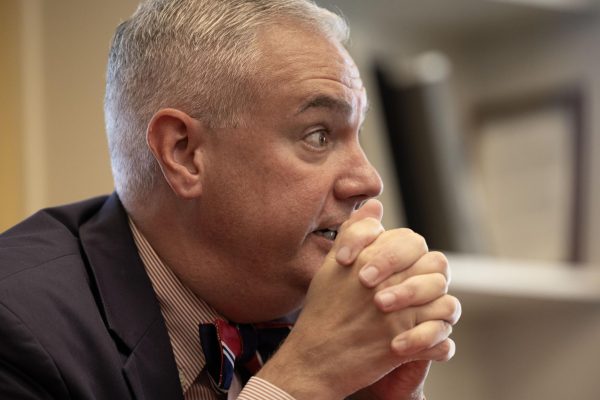
Another big shift that is in the sights for the university is the completion of the First Year Village. While the conversation has begun, Caboni said, it will take time to begin the project.
Douglas Keen hall and Hugh Poland hall are both in the sights to be torn down and replaced by new dorm buildings.
“Figuring out how we get there is going to take some time,” Caboni said, “those are not inexpensive projects.”
Caboni said replacing these dorms with LLCs is important and number one for him.
“You’re taking a class with the folks with whom you live, and you have essentially a faculty member committed to your success in that first year,” Caboni said. “We’ve seen tremendous retention gains because of it.”
Another building that is in the plan to be renovated is Cherry Hall. The decision was made to renovate Cherry Hall to preserve its historic value, “we don’t build buildings like Cherry Hall or Van Meter any longer,” Caboni said.
“This really is a reimagining of the interior space in a way that makes it useful for another generation of Hilltoppers, but I’m also committed to ensuring that as much of the interior historic qualities of the building are retained,” Caboni said.
Since the stairs within Cherry Hall are made from marble, one of the important things is to preserve them, Caboni said.
“Every time I climb the steps, I’m reminded of the generations of folks who have walked up the steps before me and who will walk up the steps after me when I’m long gone,” Caboni said.
With flexible dates, the completion of the new business college across from South Lawn is set for summer 2025, and the renovation of Cherry Hall to be completed summer 2027, Caboni said.
Academics, Retention and Enrollment
Caboni discussed the university’s successes in retention and enrollment, specifically with the incoming freshman class.
LLCs are where students live on a residence hall floor with others sharing similar academic or social interests. The LLC program began in Fall 2021, and as it enters its third year, Caboni said there have been “tremendous retention gains” from the program.
“Students who participate in an LLC are almost over 6% more likely to come back in the spring semester than those who do not,” Caboni said. “The last thing that we know is, it’s changing the perception of us as an institution.”
This year, there are over 33% more participants in the program, a third of the entering class. Caboni said there is an “excess demand” to be in an LLC.
He said although all the numbers have not been finalized, 3.1% enrollment growth has been seen in the first year class as the university pushes towards a goal of 3,000 first year students.
“We are shaping that first year class by decisions we made several years ago,” Caboni said.
Interventions such as the LLCs, the Summer Scholars Program, shifting and reallocating scholarship dollars and more attention towards first generation students have been intentional to improve retention, Caboni said.
“Because if you get your retention rates up, you don’t lose revenue, because you’re bringing folks in for the first year and they’re leaving for the second year,” Caboni said. “The important number for me is the 3.1% growth in overall enrollment.”
Caboni explained that external pressures will affect WKU enrollment and the university’s efforts to recruit students. A difficulty that universities across the country face is an “enrollment cliff,” which is a declining number of college age students do to lower birth rates during the recession.
“When you think about the number of students going to post secondary education going from 57 to 47%, declining age cohort, that means we have to redouble our efforts to recruit, to talk about the quality of experience we have here,” Caboni said. “We need to continue focusing on affordability and being a welcoming place for every student, because in addition to a demographic cliff, the demographic makeup of that group also is shifting.”
He said WKU’s location in Bowling Green and its proximity to Nashville provides an important “feeder market” for out-of-state enrollment, as well as students from Chicago and further north.
“We are growing that out of state enrollment every year in our first year class […] that will be important for us, but also making sure that we focus on students in our backyard,” Caboni said.
Caboni described the university’s chance to “shape the future of our community” with enrolled students and keeping students in Bowling Green.
“The university, the chamber, the city, the county, all are trying to envision what do we do today so in the next 20 years, we’re set up for success,” Caboni said.
He said there will be challenges to face with a closeness to Nashville and with increasing enrollment, such as paying close attention to housing stock and reworking public transportation opportunities throughout the city.
“We can have growth, but it has to be smart growth, and it has to be growth that retains what’s so special about Bowling Green,” Caboni said.






